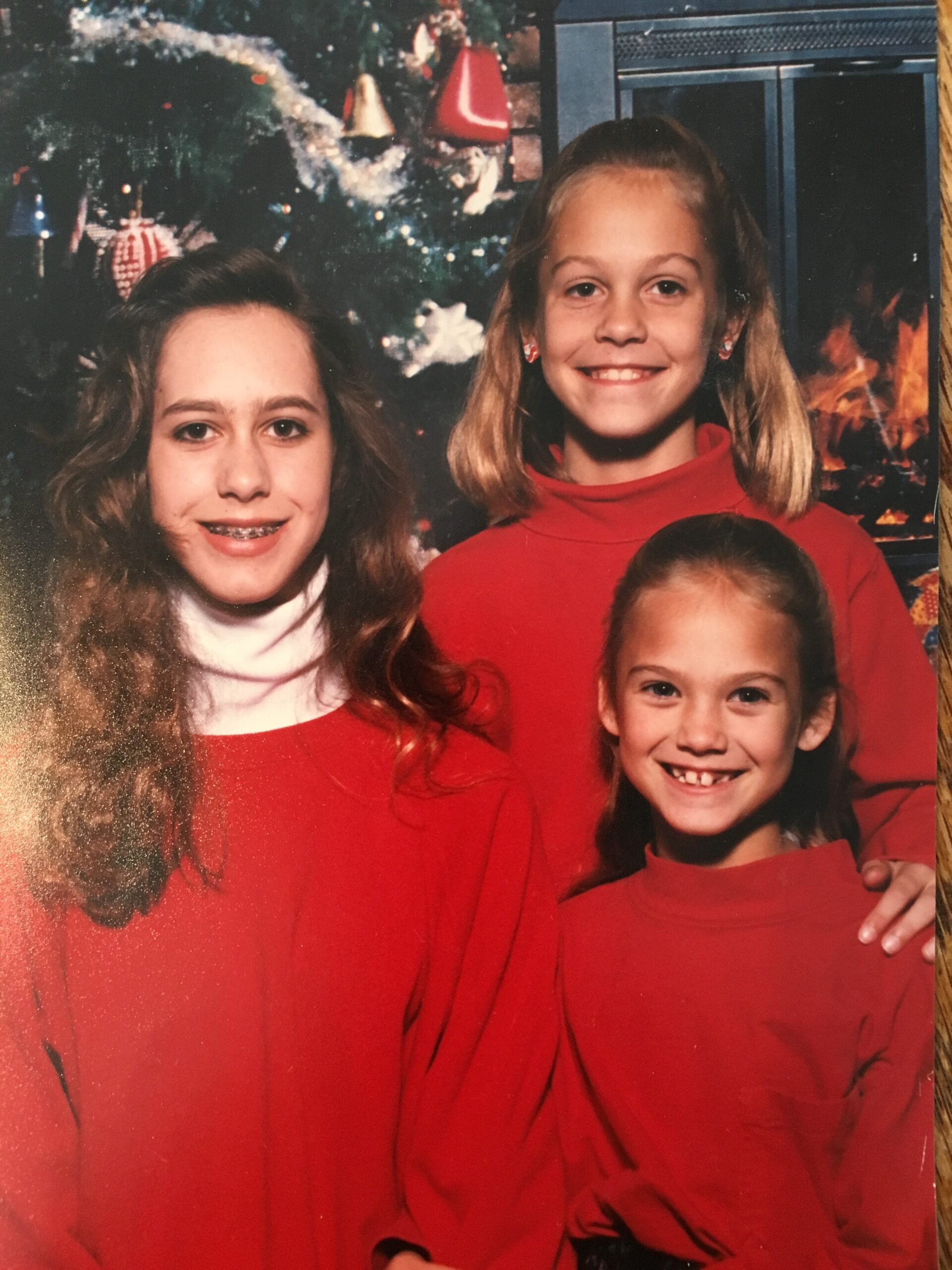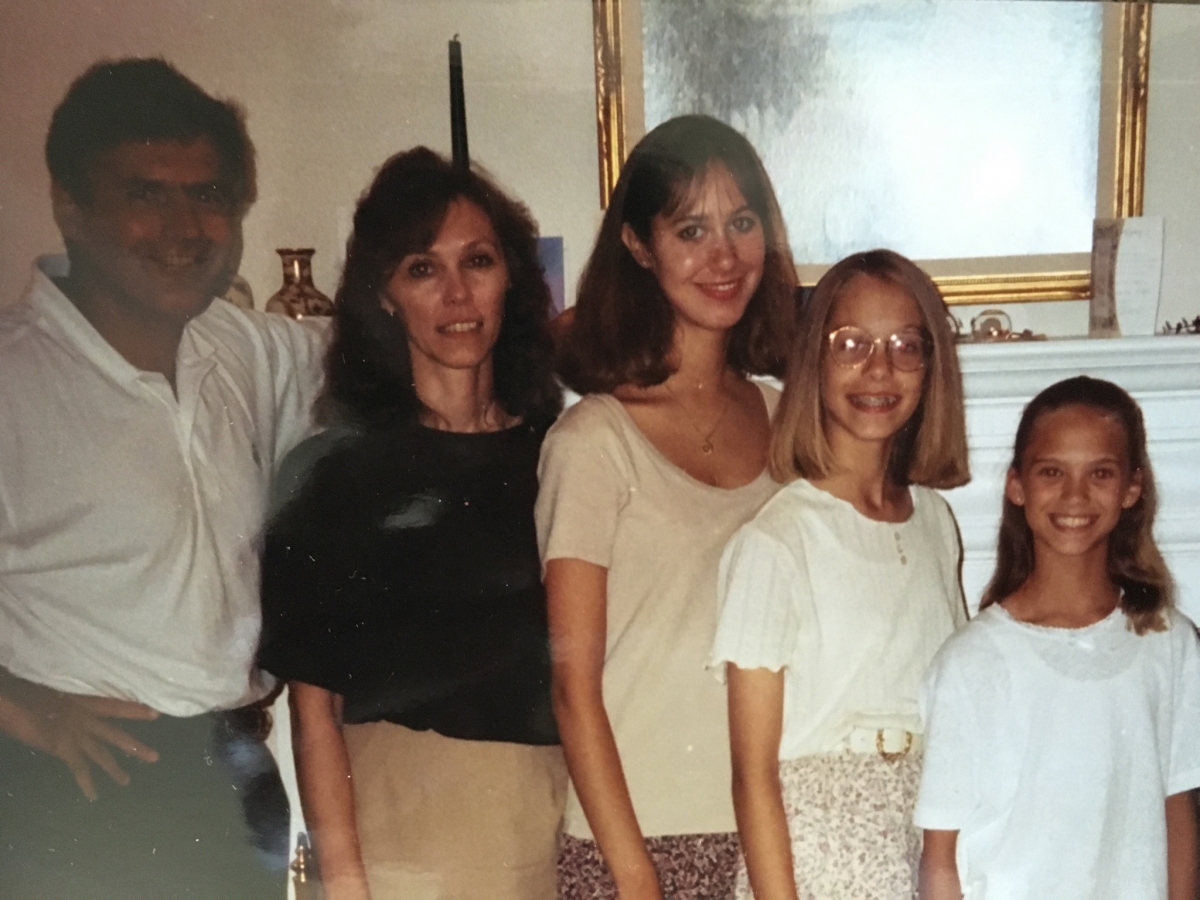
Shigella: A Survivor's Story

Shigella, a deadly bacterial infection that causes diarrhea, may not be a household name, but it quickly became one for the Maier family when Jackie (bottom right in the above photo) became severely ill at nine years old, right around the time this photo was taken.
Efforts to defeat diarrheal disease is truly a family affair in this case; Nicole Maier (Jackie’s sister, center in the above photo) is now a Clinical and Regulatory Coordinator for PATH’s Enteric Vaccine Initiative – currently working on a vaccine against Shigella!
We talked with Nicole’s sister, Jackie, and mother, Roxanne, to hear their firsthand accounts about how they dealt with the sudden onset of the illness and its complications.
Walk us through the timeline of what happened. How did everything unfold?
Jackie: I was nine years old, and I was at a friend’s house for a sleepover. When I woke up in the morning I felt stomach pain. I remember I didn’t want any breakfast, I felt tired and weak, and needed to use the bathroom every 5-10 minutes. In my mind, it happened so suddenly. One day I was fine, playing at my friend’s house, having fun, and the next day I was miserable.
My mom picked me up from my friend’s house and by the time I got home, I couldn’t walk. She and my older sister, Rebecca (age 14), had to carry me. There was so much pain, constant pain in my head, stomach, intestines, everywhere. The most difficult part? Not being able to walk to the bathroom by myself or hold myself up on the toilet because I was so tired and weak.
Roxanne: After twelve hours she started passing nothing but watery fluid with small amounts of blood. We went to the hospital where the doctor asked if she had drunk red Kool-Aid! I told him she was my third child and I knew this was different. He told me to keep her well-hydrated and sent us home.
Having had nothing but Pedialyte and water for a couple of days, her diarrhea became much worse. She was passing nothing but blood and mucous. I collected a specimen and we took her to Walter Reed Medical Center’s Emergency Room.
What happened after you got to the Emergency Room?
Roxanne: The doctors there were wonderful. It was July 4th and the ER was crowded, but they processed us quickly. One of the doctors who examined Jackie had just returned from duty in Somalia, so he was very familiar with diarrheal disease. As soon as he looked at the specimen he said, “This is Shigella.” After observation and testing to ensure her kidneys were not affected, they treated her with drugs for tenesmus and with antibiotics.
What do you remember about how you felt emotionally?
Jackie: I think I was too tired and weak to have much emotion in the beginning. I was definitely scared, exhausted, and in pain. After being sick for a couple days, I remember eventually feeling desperate for it to stop, begging for it to be over. As time went on (months and years) and I saw multiple doctors, who were wonderful but only seemed to provide temporary relief from the stomach pain and diarrhea, I started to feel very trapped, sad, and discouraged. At times I was scared to eat because I knew I would have to lie down afterwards because of the stomach pain.
Roxanne: Several memories are hard to forget. The dismissive attitude of the first doctor who asked if Jackie had red Kool-Aid. The distinctive odor of the infection. Holding Jackie on the toilet because she was too weak to sit on her own. The memory of my oldest daughter, Rebecca, who was only 14 at the time, offering assistance and support beyond her years.
Since we never identified where or how she got the illness, I didn’t know how to protect the rest of my family and myself. I was concerned about Jackie being reinfected or passing it to someone else, especially her sisters.
 The Maier family and their three daughters, left to right: Rebecca (age 14), Nicole (age 10), and Jackie (age 9). This photo was taken one month before Jackie got sick.
The Maier family and their three daughters, left to right: Rebecca (age 14), Nicole (age 10), and Jackie (age 9). This photo was taken one month before Jackie got sick.
Jackie: My parents were amazing, especially my mom. She slept with/near me the entire time, helped me walk to/from the bathroom, held me up on the toilet because I just wanted to sleep, carried me (at age 9!!) to/from the car when we went to doctor’s appointments. She ran around fetching water, cold towels for my forehead, and tirelessly calling doctors offices for appointments. My parents were so kind and gentle, understanding, encouraging, accommodating, loving, and unbelievably strong – the perfect patient advocates. They gave up a lot of sleep and took a lot of time off work to take care of me and never once seemed frustrated or annoyed with me. I know they were worried, and at times sad, but that was rare. What I remember most is their patience and always seeming to know what to do or who to call next (even if that wasn’t the case, they faked it well).
Have you had to deal with any long-term complications?
Roxanne: Jackie developed ulcerative colitis and chronic gastritis after her infection. Her family physician, a pediatric gastroenterologist from Georgetown Hospital, and gastroenterologists from INOVA treated Jackie for the following 15 years for these issues.
Jackie: I had to continue daily medication until I was in my early 20s to regulate acid levels, minimize diarrhea, and help with stomach and intestinal pain after eating and/or using the bathroom. Currently, at 32, I am very lucky and don’t have many physical complications (knock on wood!), but my digestive system will always remain sensitive. I am prone to stomach aches and diarrhea from stress and from eating too much fatty food. If I do get a stomach flu or food poisoning, it takes longer for my body to recover – usually at least a week before I go back to a regular diet.
Who would have thought that your sister/other daughter would be working on a vaccine against Shigella?
Roxanne: I’m not surprised Nicole has taken an interest in diarrheal disease. She is only 16 months older than Jackie, so for much of her formative years she watched Jackie cope with relapses, special diets, and medication regimens. She developed a fascination with poop. For a while, I thought she might become a gastroenterologist, but I think she made a much better choice. It’s important to prevent the infection so we don’t have to treat the illness and it complications. I’m really proud to think she’s a part of this effort.
What would you say to policymakers considering investing in a vaccine against Shigella?
Jackie: I would strongly encourage all policymakers to invest. Diarrhea may seem temporary, simple, and common, but in some cases it’s severe and has horrible, lasting effects on the digestive system. The vaccine would reduce health care costs related to treatment of the disease and resulting complications, like my gastritis and colitis.
Roxanne: A vaccine would benefit our country’s defense and economy. It would protect our soldiers deployed in areas where diarrheal disease is prevalent. It would reduce time lost at work due to sick employees or their sick children. In other countries, a vaccine could be life-saving. Too many believe that diarrhea is a common ailment with no long term consequences. Unfortunately, that’s not always the case.
Is there anything else you want to add?
Roxanne: I want to thank everyone involved in seeking solutions to address diarrheal disease. After my experience, I have a special appreciation for their efforts.
Jackie: Like my mom, I’m grateful that there are scientists like my sister, Nicole, and others who are doing work to prevent and ease the burden of diarrheal disease. The disease is frightening, for those who have it and those around you trying to help. I do feel like getting sick defined a portion of my life and although I realize I was extremely lucky, there was a time when I was very unhappy because of my health. So, thank you!


